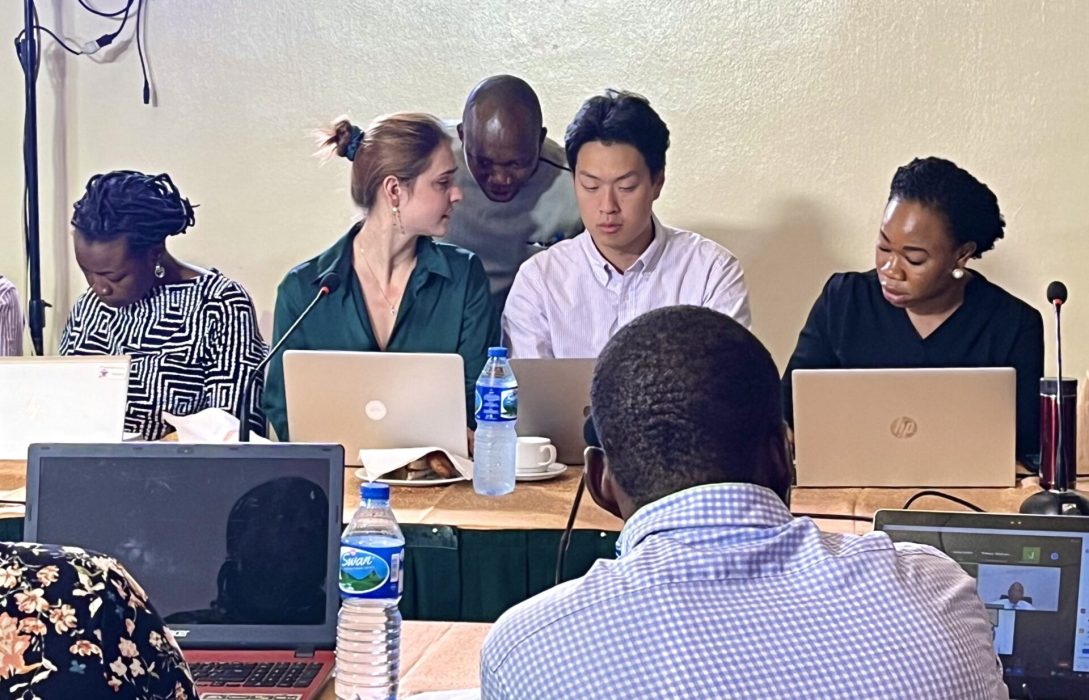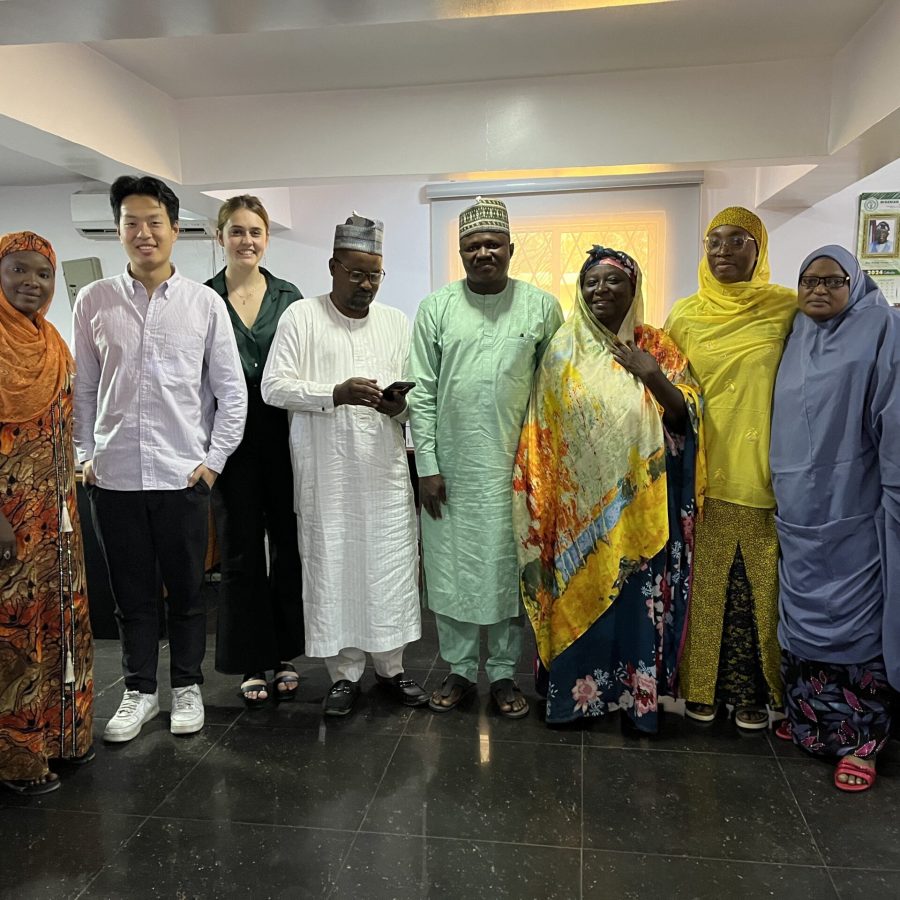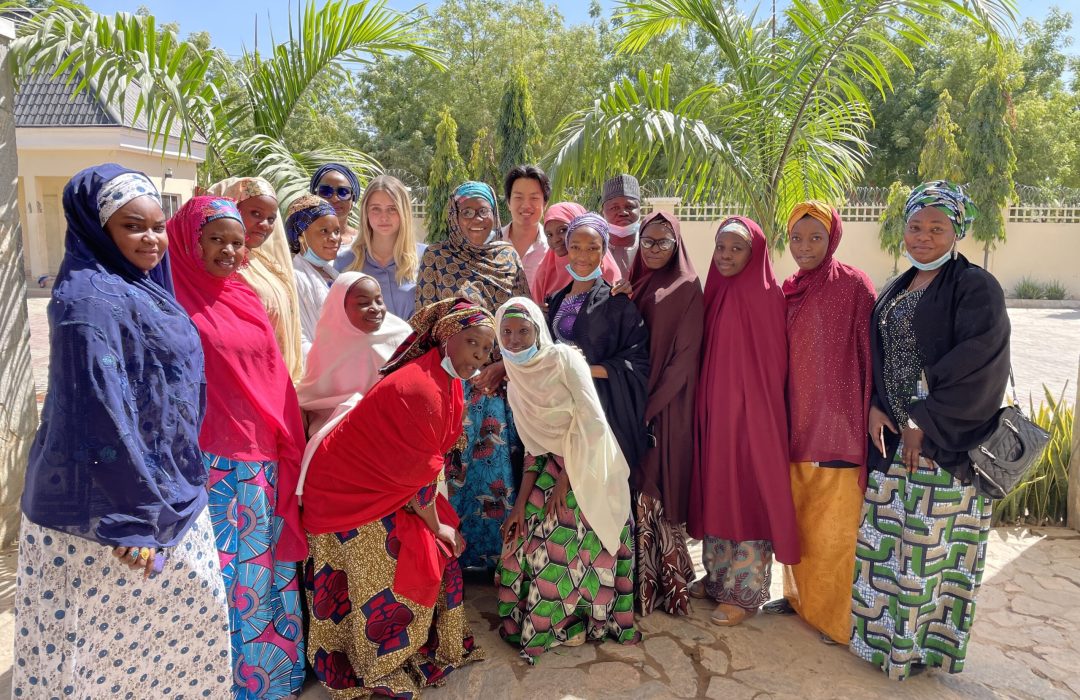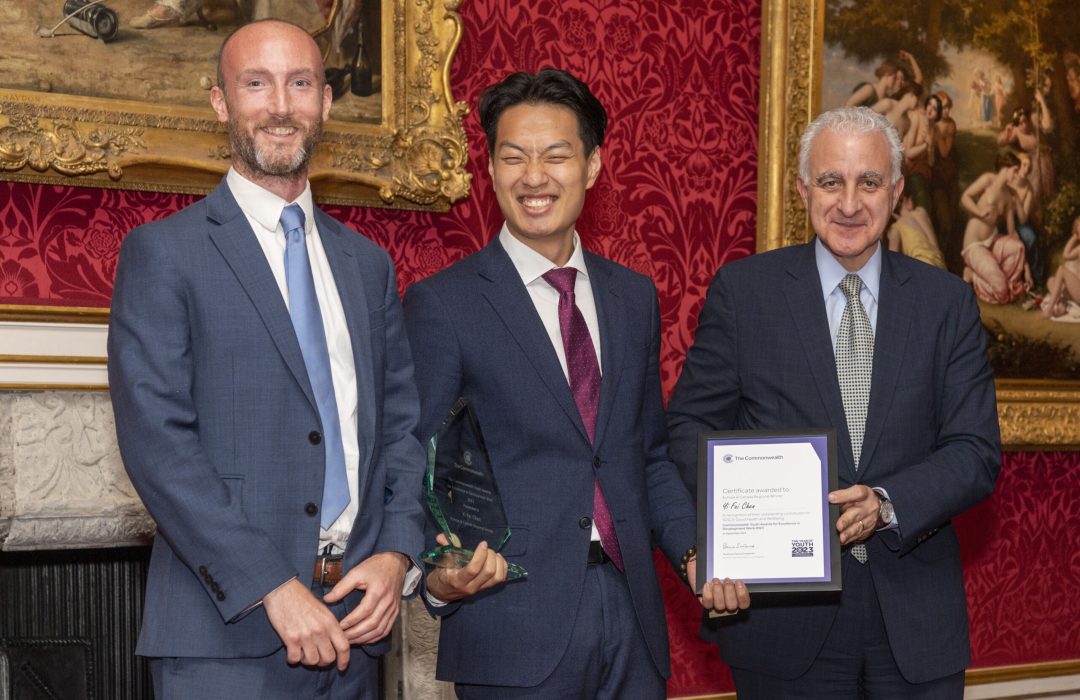When Jefferson Chen first arrived in Nigeria in 2018, he did not yet know the depth of connection he would form with the country and its people. But his work as a student consultant would intersect with the world of women’s health and set him on a path of female empowerment and economic equity through the founding of the not-for-profit, Lafiya Nigeria.

“We arrived in Nigeria with the intent of solving one problem, and left understanding that a problem existed that we hadn’t anticipated and a solution was needed. We realized what it was that many Nigerian women needed to gain economic independence and that’s where my not-for-profit journey started.”
Identifying complex problems and creating solutions is a process Jefferson engaged in at Shad’s University of Calgary campus in 2015, and it has since become something of an innate reaction when encountering real world problems where he feels he can have an impact.
“Shad was a great experience. We were really challenged to approach things with problem solving in mind, always with the assumption that we have the capacity to affect change in ways we might not at first recognize. It instilled such a great mindset.”
This belief in his ability to have an impact underpinned Jefferson’s response to what he was hearing when he first arrived in Nigeria as a student at the University of Oxford in England. In his student consulting role for the Ministry of Environment, Jefferson and his future Lafiya Nigeria cofounder were working on a development consultancy project that involved creating a business training plan for rural women entrepreneurs to sell clean cook stoves. This process involved many interviews and engagement with women in local communities to gauge their needs and learn how best to help them.

“We heard a lot of personal stories from rural women entrepreneurs who said to us ‘well those sound like great ideas, but I’m 27 and I have 6 children, how am I supposed to take part in your entrepreneurship program?’ So that really left a big impression on my cofounder and me. As we moved into other careers, my cofounder in management consulting and me in healthcare, those stories remained in our minds and led us back around to founding Lafiya.”
Jefferson and his cofounder realized that a lack of agency in family planning and access to women’s healthcare, like contraception, had created huge barriers for Nigerian women attaining economic and financial independence, and if they wanted to truly affect poverty, education, and maternal mortality in the region, this gap in access needed to be filled.
“Our first step was making connections within the community, with women we call ‘Lafiya Sisters’, who have healthcare training and who know the women and have trusting relationships with them. They are really important in connecting us with women who want our services and helping them understand any healthcare questions.”

A lack of access to proper maternal care creates significant risk for Nigerian women. Over 40,000 Nigerian women die every year from complications of childbirth and pregnancy, many of which are unplanned. As a result of colonial influences, the country is not set up to act easily in a unified way, meaning that some parts are more affluent and modernized while others remain more rural and impoverished. It is in these more rural communities where most women lack healthcare and who are most negatively impacted by a lack of agency in family planning, despite one quarter of them wanting some form of contraception.
“There’s a lot of research that has been done to demonstrate the degree of social return on investment in family planning. There are many economic, social, and political empowerment benefits that come with women having access to contraception and having full agency in their lives, to be able to say what they will or will not do.

Lafiya Nigeria works to reduce barriers to women’s healthcare by working with trained community nurses and midwives, the organization’s ‘Lafiya Sisters’, in training local community women to provide family planning counselling to women who need it most, provide contraception free of charge to the many women who want it, and empower women to live the life they want.
“It’s our Lafiya Sisters on the ground that make our work possible. They are crucial for building trust among the women we serve and they’re the ones who are able to reach those in the hardest to reach areas, which greatly increases our impact. They’re just amazing women and we’re so grateful to have them as partners.”
Jefferson was recently recognized for the incredible work Lafiya Nigeria does with a 2023 Commonwealth Young Person of the Year award, which was presented to him by the Duke of Edinburgh last fall. The award recognizes outstanding work by youth in the commonwealth to promote development work and sustainability initiatives.
“The most important thing about the award was being able to connect with young people who are doing really great things all across the world. From Australia, to Fiji, to India there are really exciting and impactful projects, and being able to meet the people leading them and learn from them during the awards was really valuable to me. I felt like I was able to derive a lot of inspiration from it.”

This appreciation for the power of connection and learning from others is something Jefferson ties back to his time at Shad. Shad’s emphasis on connections with peers and the building of a network of other inspiring youth is something he places great value on, as it offers a kind of impact roadmap for students to follow.
“The friendship element of Shad was so impactful. I’m actually quite close with some of my Shad friends, which just shows the bond we all formed. At Shad, we learned how important it is to have those connections, people who can help and offer support when you’re trying a new initiative or venture.”
As Lafiya Nigeria scales and expands its reach, Jefferson hopes to continue to reach more marginalized communities and provide the much-needed support to women whose potential continues to amaze him.
“We have been fortunate enough to help over 10,000 women during our short time in operation. This month we have started operations in our third state in Nigeria and we’re planning on a further increase to our reach in May. As long as we continue to lower maternal mortality through contraceptive access and healthcare availability, I’m happy. The goal is just to help as many women as we can reach their potential.”
